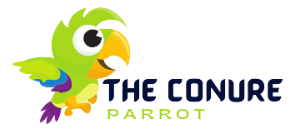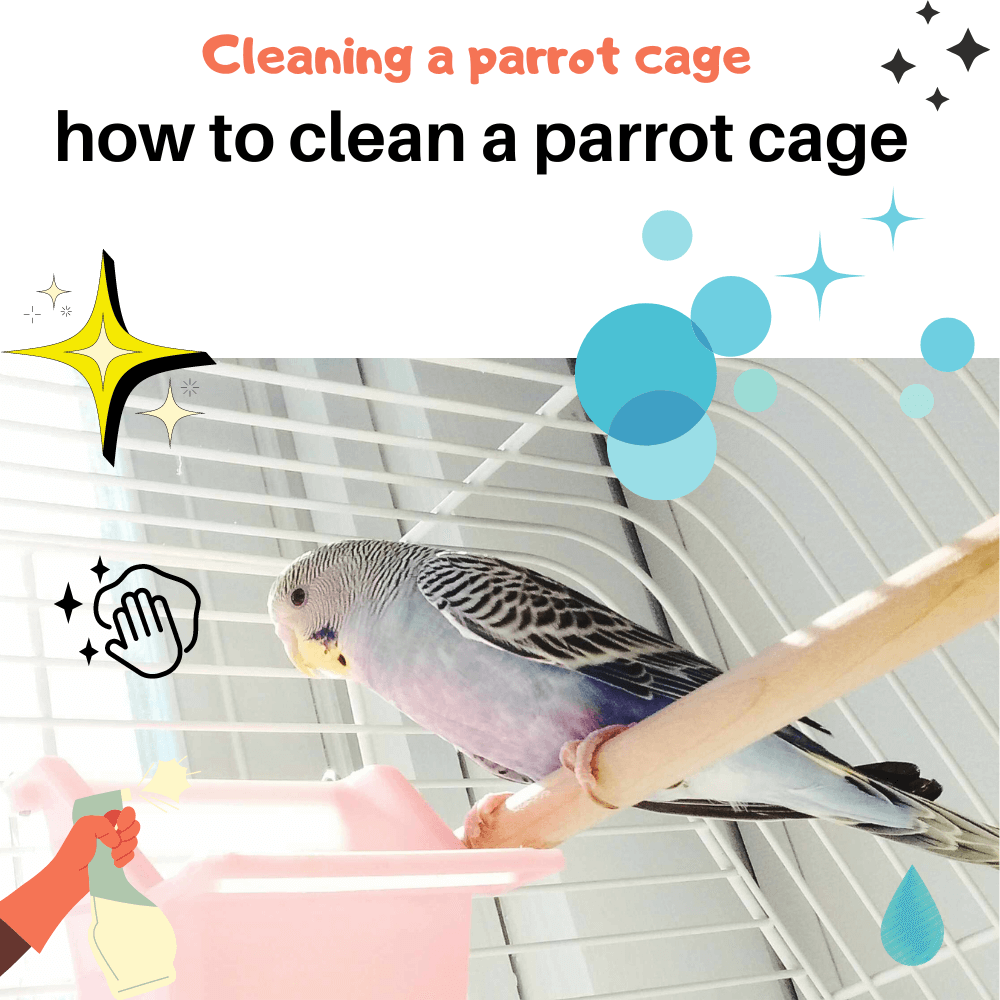Cleaning a parrot cage: parrots are animals that can be very dirty, between the projection of seeds and droppings, it is important to pay particular attention to the hygiene of their habitat in order to avoid parasites and diseases.
To preserve the health of your small animal, it is not enough only to clean the bottom of the cage but to wash all the accessories, including the bars, without forgetting to disinfect everything regularly.
How to clean and disinfect a birdcage? What products to use to clean the cage of your parrot or parakeets? Are cage sanitizers a substitute for bird parasite treatment? How to clean an aviary?
How to clean a bird cage
For good hygiene of the environment of your bird, it is advisable to clean the bottom of the cage or the aviary daily by removing the droppings, feathers, projections of seeds, and other food.
This operation is all the more simple and quick when the cage is equipped with a drawer responsible for collecting all the dirt. With a twist of the hand, all you have to do is remove it, throw away the waste, and put it back in the cage.
You can also put sheets of newspaper or paper towels on the bottom of the cage and change it each time you clean. This method has the advantage of protecting the bottom of the cage from dirt and freeing you from a task during cleaning.
Do not forget to put a thin layer of aniseed sand on the bottom of the cage once the cleaning is done. Indeed this sand contains minerals very good for the health of birds.
Also, remember to wash and disinfect the drinker regularly to prevent the formation of scale and the proliferation of bacteria. The ideal is to have two in order to rotate and always have a clean drinking trough to offer the birds.
The same applies if you give fruit to your birds, do not leave them for more than a few hours in the cage so that they do not rot, and immediately clean the feeder or the dish after use.
Weekly cleaning
Every fortnight, or every week depending on the species and the number of birds living in the cage, it is advisable to thoroughly clean the entire cage.
This goes through all the accessories that adorn the habitat: feeders and drinkers, perches, nests, swings, bathtubs, and games. Be aware that before you can disinfect the accessories it is important to clean them well beforehand. Using a disinfectant will have no effect if the surface is not thoroughly washed first!
You can therefore clean the cage and the accessories with water and dishwashing liquid which will do the trick in this case. However, if heavy dirt persists, you can use diluted bleach, taking care to rinse the cleaned surfaces well. Do not neglect the bars which must also be part of the cleaning. A damp cloth or wipe will do just fine for this.
For the well-being of the birds, but also yours, remove the excrement stuck to the walls and bars of the cage. Use a brush or, in the worst case, a spatula to loosen them. It is also a job to be done during daily cleaning and requires less effort when the droppings are still fresh.
Disinfect bird cage
It is important to properly disinfect the birdcage in order to eliminate microorganisms such as bacteria and other microbes that can cause disease in birds.
Disinfecting the cage of your birds should be done at least twice a month, depending on the cleanliness and the number of birds living in the cage, it will have to be done more regularly.
Be aware, however, that disinfecting the cage does not kill parasites such as lice, mites, or scabies! For this, it will be necessary to use anti-lice, anti-mite, or treatment against scabies. If your bird shows symptoms of these pathologies, contact your veterinarian who will be able to prescribe suitable products.
Products for cleaning a bird cage
What products to clean your bird cage? You can find everything you need for cleaning poultry equipment on the market. Pet stores also offer maintenance and disinfection products for bird cages such as detergents or sprays. However, these products can be expensive, between 10 and 20€ depending on the brand.
The cheapest product for cleaning a birdcage is white vinegar ! Easily found for less than a euro on the market, it is an excellent cleaner that is not harmful to your bird or to you!
As for disinfectants, bleach is the most common by adding it to a good cleaning product beforehand. Some, however, prefer to use it only as a cleanser. Bactericides such as Cresyl or phenol-based products are recommended although they require long aeration due to their strong smell.

